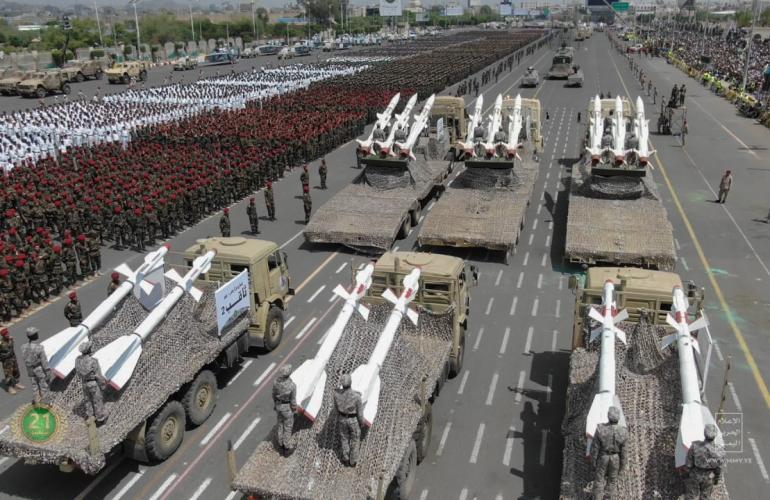Sana'a has reiterated military warnings to countries participating in the Saudi-American-Emirati aggression, urging them to consider the consequences of stalling in responding to the demands and entitlements of the Yemeni people. On Sunday, Brigadier Yahya Saree, spokesperson for the armed forces, confirmed an increase in combat readiness and preparedness to continue liberating the country and disciplining the enemies, thereby pressuring the Saudi regime to make a decisive decision before it's too late.
Brigadier Saree's statements, reported by the defense ministry-affiliated website "26 September Net," emphasized that the armed forces' patience would not last long, signaling Sanaa's refusal to allow the coalition countries to continue stalling and attempting to buy more time. He added that after more than a year of a ceasefire, the armed forces have raised their readiness and prepared for the coming days.
Defense Minister Major General Mohammed Nasser Al-Atefi issued a warning on Saturday, stating that the armed forces are ready for all possibilities. Sanaa's messages and warnings to the coalition aggressive countries have escalated in recent weeks, coinciding with increased American efforts to hinder peace and growing signs of the Saudi regime responding to Washington's directives.
At the forefront of these warnings is the statement by the leader of the revolution, Sayyid Abdul-Malik Badr al-Din al-Houthi, during the annual anniversary speech of the "Al-Sarkha", in which he confirmed that the suffering of the Yemeni people would not continue without accountability. He warned that the aggression countries would not be immune from the consequences of continuing the war and blockade, cautioning Saudi Arabia that it would not achieve security, stability, or economic ambitions without fair peace in Yemen.
President Mahdi Al-Mashat has also previously stated that stalling will lead to the exhaustion of patience, holding Saudi Arabia responsible for responding to American directives. In support of these messages, Brigadier Saree confirmed that the armed forces are waiting for the commander's signal to begin liberating the homeland and expelling and disciplining the invaders on all levels, at sea, on land, and in the air, and to carry out qualitative strikes within the depth of the coalition countries.
He added, "If they want peace, we are the people of peace; if they want war, we are its men."
This confirmation highlights that the coalition's reliance on stalling and attempting to buy more time will only lead to an explosion of the situation and the forceful seizure of rights. Sana'a will not allow the enemy to search for ways to prolong the state of neither war nor peace.
The Secretary-General of the Supreme Political Council has previously confirmed that Sana'a is preparing for deterrent alternatives if coalition countries insist on stalling and procrastination. Meanwhile, the Deputy Prime Minister for Defense and Security Affairs has hinted at military options to paralyze the movement of Saudi ports in response to the continued blockade.
Brigadier Saree has confirmed that "the armed forces are now more resilient and stronger after more than 3,000 days of aggression than at any previous time," indicating that the enemy's bets and calculations to resolve the battle in Yemen have all failed.
The successive messages and warnings from Sana'a to the aggressive countries during this period point to the sensitivity of the current stage in the negotiation process and the need for a decisive and final decision by the enemy before it's too late. The passage of more than a year of de-escalation without genuine progress towards peace is a clear indication of a lack of seriousness among coalition aggressive countries in seeking a comprehensive solution. This makes the option of forcefully seizing rights more effective unless the situation is quickly rectified by responding to humanitarian demands, including lifting restrictions on Sana'a airport and Hodeidah port, paying salaries from the country's revenues, and addressing the issue of prisoners.
The United States continues to express its determination to continue the war, blockade, and hinder peace efforts, linking the Yemeni people's humanitarian demands to political gains and attempting to impose conditions that allow aggression countries to evade peace commitments.







